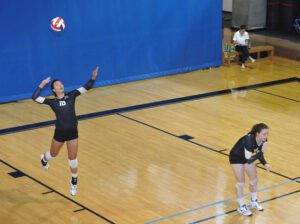How often have we heard these three terms used interchangeably: fear, mental block, performance anxiety? What if I were to tell you they all have different meanings and because they do, should be treated differently?
- By definition, fear is an unpleasant emotion caused by a belief that someone or something is dangerous, likely to cause pain, or a threat (Webster, 2017).
- A mental block is an inability to recall some specific thing or perform some mental action (Webster, 2017).
- Having performance anxiety is a state or condition of nervousness or fear which prevents or adversely affects the activity being attempted; also called stage fright (Webster, 2017).
Coaches, athletes, and parents who cannot explain fear will oftentimes label it as the athlete having a mental block or performance anxiety. Especially if it appears “out of the blue” or if the athlete has not experienced an injury prior to beginning to struggle.
This article intends to unlock the mystery behind the “sudden” fear that often rears it ugly head in the minds of the athlete by explaining how it happens and then how to regain your athletic prowess once again after.
First and foremost I want to assure the athlete, coach and parents that the skill(s) that the athlete is now finding that he/she is not able to do but could do a week ago is not “lost”. Also, your athlete is not broken. He/she does not need to “be fixed”.
There is a physiological reaction we all have called “fight-or-flight”. This is a response to perceived danger as a way of protection for ourselves. When we experience excessive stress, whether it is from worry or external circumstances, our bodies will trigger this physiological reaction called “fight-or-flight”. When our “fight-or-flight” is activated, our fear is exaggerated. Our thinking is distorted. We see everything through the fear of possible danger. We narrow our focus to those things that can harm us. Fear becomes the lens through which we see the world (The Fight or Flight Response – NeilMD.com).
Now transfer this over to sports, the average person will not allow a 90 mph ball to be thrown at their face and remain inside the batter box and not move. An athlete that has been trained to keep his eye on the pitcher and the ball and trust his own instinct will. Take that same athlete who gets hit in the face with that 90 mph ball, he will still stay in the box because he understands “what” caused the accident. Now after a couple of hits, the athlete has some doubt and begins to shift in the box.
How about the gymnast who has been tumbling backwards for a couple of years with no problems, then one day she enters the gym and not only will she not tumble backwards, but she will not do any of her backwards skills. What is wrong?
If the case of these two brief examples, neither of these athletes have “lost” their skills and neither of them are suffering from “fear”, “mental block” or “performance anxiety”. What is happening is their bodies are experiencing a physiological reaction from not being able to naturally respond to the “fight-or fight” response we were created to do and they have become “frozen”.
What their bodies are telling them is, okay, you’re not going to remove me from this unsafe situation, then I’m simply not going to let you perform until you do.
When I work with athletes who are “frozen”, I first get a clear picture of what occurred prior to them becoming frozen. Oftentimes the causes occur away from the gym.
Because all athletes are different, the specific recovery process for helping athletes will vary. The recovery process involves time, patience, and understanding on the part of the coach, athlete, and parents. Always go back to the basics and break down the skills and to make sure the athlete is in a comfortable setting once again. If the root cause to why the athlete is frozen is outside of the gym, make sure the parent has helpful resources to assist the athlete in overcoming those challenges.
Remember, you haven’t “lost” the skill and you don’t need to be “fixed”. Just give yourself time, attention, and love.
This has been a motivational moment from Coach Christina!
————————————————————————
CoachUp is the safest and easiest way to find a coach for personalized training. With our 100% money-back guarantee and vetted coaches, anyone can achieve their full athletic potential. Find your perfect coach today and become the athlete you want to be!
How useful was this post?
Click on a star to rate it!
Average rating 4 / 5. Vote count: 4
No votes so far! Be the first to rate this post.





One Response
So pointed to me. I’m a 70 year old competitor in Figure Skating. By my own mistake, 2 years ago I took a fall while on the ice training that broke my shoulder & arm and I had a minor concussion. My fractures where not displaced, I did not need surgery, and I was back on the ice in 8 weeks. However, I’ve had lingering fear which holds my progression back & causes me extreme anxiety when I competite or test. Do you have anymore info/resources and coaches/therapists for this issue in Pittsburgh,PA?